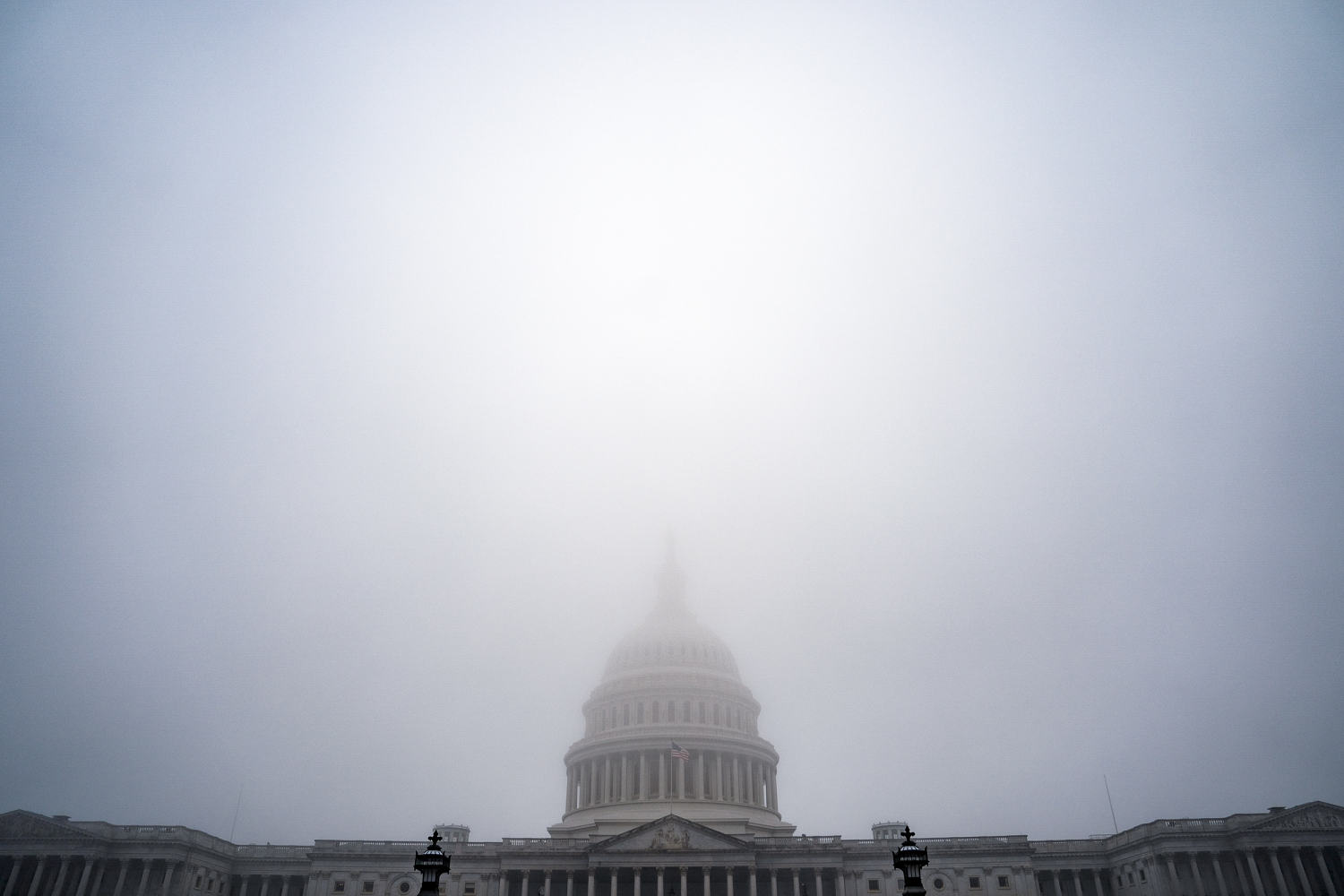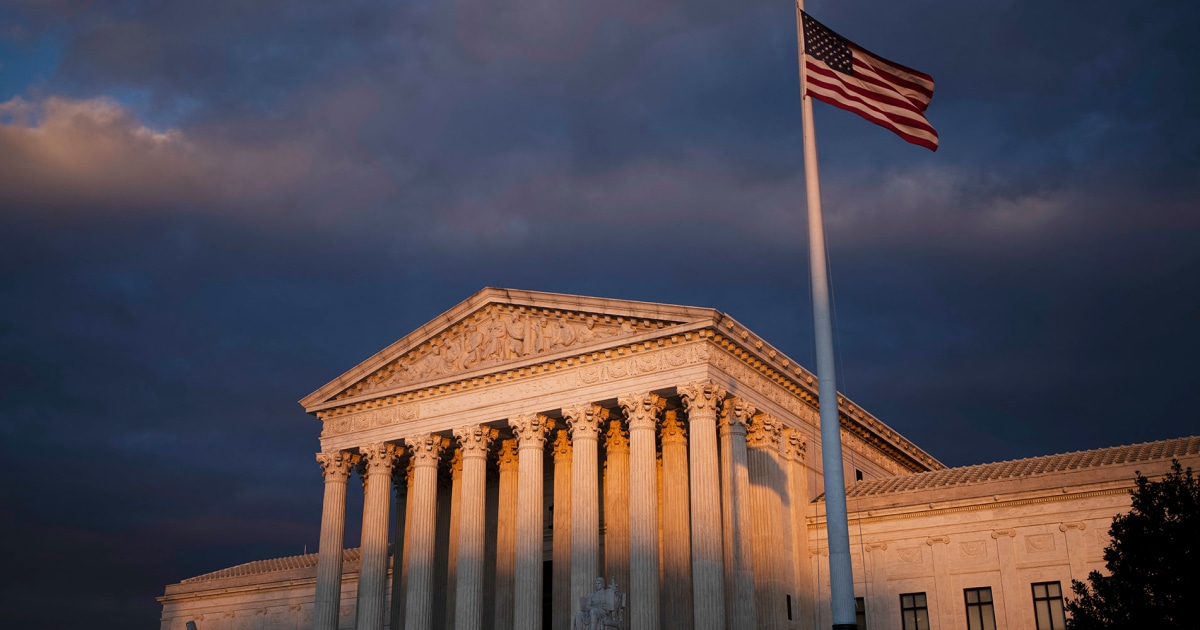
The House passed a massive defense spending bill Wednesday with a provision that bars the military’s health care program from covering transition-related care for minors. If it passes, some families said it would be devastating and could force them out of the military.
The National Defense Authorization Act, a must-pass $895 billion bill, sets Pentagon and defense policies for the next year. Speaker Mike Johnson, R-La., pushed to add the new provision regarding trans care, which states that “affirming hormone therapy, puberty blockers, and other medical interventions for the treatment of gender dysphoria that could result in sterilization may not be provided to a child under the age of 18” under Tricare, the military’s health program.
The bill passed the House 281-140 Wednesday, with 200 Republicans and 81 Democrats voting yes, while 124 Democrats and 16 Republicans voted no. The Senate will vote on the bill next week, and then it will be sent to President Joe Biden — who would need to veto the entire package if he wanted to block the trans care element.
If the NDAA is signed into law, it would mark one of the first times Congress has aggressively attempted to pass a federal statute targeting trans people.
Johnson called the bill’s passage in the House “an important win for our troops,” noting that it would provide pay increases to about half of enlisted service members and improve military housing, among other investments.
“We also believe it’s important to refocus the Pentagon on military lethality, not radical woke ideology,” he said in a statement Wednesday. “This legislation permanently bans transgender treatment for minors, prohibits critical race theory in military academies, ends the DEI bureaucracy, and combats antisemitism.”
However, some military families with trans children disagree that the provision regarding trans care will improve the military.
One active duty member of the Air Force, who has served for more than two decades and has a trans daughter who is receiving treatment for gender dysphoria through Tricare, said the bill sends a “mixed message,” because it could help some military families while harming others.
“The reason why the military has some of the amazing benefits that we do is so that when we are called to action or we are called to war, we can focus entirely on the mission and the task at hand, because we know that our family and our home life is secure and safe,” said the service member, who requested anonymity out of fear of facing repercussions at work for speaking to the press. “If you want to ensure we remain the world’s most effective fighting force, you should not take away care for our military members and their dependents.”
The service member and his spouse said their teenage daughter came out to them about four years ago. About two years ago, she underwent at least six months of psychological evaluations and received other doctors’ opinions before beginning hormone therapy.
“Once she was able to receive the gender-affirming care, it was like the puzzle pieces fell into place,” the service member’s spouse said. “We could see her, she was happy, her grades got better, she started to make so many more friends. It was beautiful. It was a veil that got removed, and then you could fully see your kid and celebrate them.”
The service member said that if the NDAA passes with the provision regarding trans care for minors, he would consider finding supplemental insurance or paying out of pocket for his daughter’s care, but that doing so would strain his family’s budget. He said the out-of-pocket costs would vary depending on whether they can get supplemental insurance. The average cost of estrogen without insurance can fall between $20 to $200 per month depending on the dose and delivery method.
The restriction and its associated out-of-pocket costs, his spouse added, would put some military families “into survival mode instead of being ready for the mission ahead.”
The service member said that the restriction would definitely “affect my decision whether we continue to serve.”
“I have a strong desire and propensity to continue to serve and to continue to give back to the military, but if I lose access to care for my family, my family’s got to come first,” he said.
Johnson did not return a request for comment regarding the potential effects of the provision on some military families.
It’s unclear how many families would be affected by the provision. But Rep. Adam Smith, D-Wash., the former Armed Services chairman who is now the panel’s ranking member, said on the House floor Wednesday that there are about 4,000 minors currently within the military health system whose care would be taken away by the restriction.
“[B]lanketly denying health care to people who need it — just because of a biased notion against transgender people — is wrong,” Smith said in a statement Tuesday. “The inclusion of this harmful provision puts the lives of children at risk and may force thousands of service members to make the choice of continuing their military service or leaving to ensure their child can get the health care they need.”
Cathy Marcello, the deputy director of the Modern Military Association of America, an organization that advocates for LGBTQ members of the military and veterans, said hundreds of the families the organization supports are frightened by the potential restriction. She added that Modern Military estimates that there are currently about 10,000 trans youth between 6 and 22 with parents who are in the military, based on the Defense Department’s estimate that there are 1.6 million military children.
“Families are deciding right now if they will be able to afford care on their own, or if they can get out, or if they should live apart,” Marcello said.
She added that 95% of the group’s membership reported altering their military career in some way because of state laws targeting LGBTQ people, according to a recent small internal poll of about 300 member families. She said the Tricare restriction would further affect where service members can live and how long they serve.
“Military families with trans kids have been serving for decades and it’s never been an issue,” she said. “To say to these many thousands of families that your sacrifice isn’t good enough, that your multiple combat deployments aren’t good enough and we don’t want you is unconscionable.”








